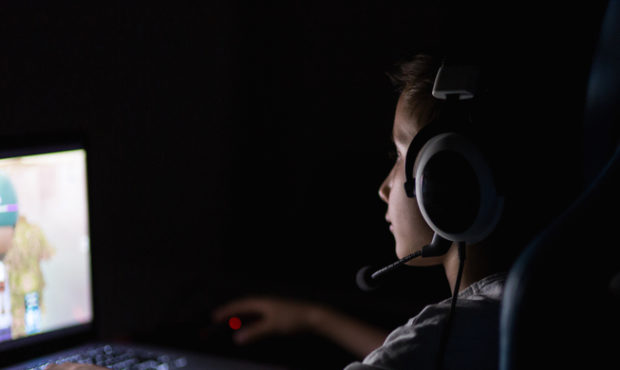New study: excessive screen time can stunt child development
Feb 4, 2019, 11:04 AM

Getty Images
A new study found excessive screen time may do much more harm than affecting young attention spans. Researchers found it may actually stunt child development.
In the study published in JAMA Pediatrics, researchers took a look at the effect that excessive screen time can have on developing toddlers. The study looked at children between 2 and 3 years old and tracked their development through age 5 and found a link between children who used screens excessively and delayed growth in crucial areas like language, emotional development, and communication.
The study says that children who spent an excessive amount of time in front of screens, whether they be tablets, smartphones, TVs or computers, advanced slower on average by the ages of three and five than kids who had less exposure.
The American Academy of Pediatrics says that the recommended screen time for preschool children between the ages of 2 to 5 is one hour of “high-quality programming” that is best when used together with a parent.
According to the study the majority of U.S. kids spend nearly double that recommended time on screens.
In a release from the University of Calgary, the school that the study originated from, author Dr. Sheri Madigan says that the deficits in development might be “because their days are consumed with screen time, children aren’t getting enough physical activity, which means they aren’t developing the motor skills they need to run, ride a bike, or throw a ball.
We also know that a lot of the positive stimulation that helps kids with their physical and cognitive development comes from interactions with caregivers,” she adds. “When they’re in front of their screens, these important parent-child interactions aren’t happening, and this can delay or derail children’s development.
The good news, according to Madigan and co-author Dr. Suzanne Tough, is that if parents have fallen into the pitfalls of letting their kids have too much screen time, it’s not too late.
“Children’s brains are developing over the course of childhood and beyond, so there’s time to make changes,” says Madigan. “Creating that family media plan can be a step in the right direction.”
She adds, “Technology is deeply entrenched in modern-day lives. Taking family-based steps to engage with technology in positive ways may be crucial to ensuring success for our children who are growing up in the digital age.”













